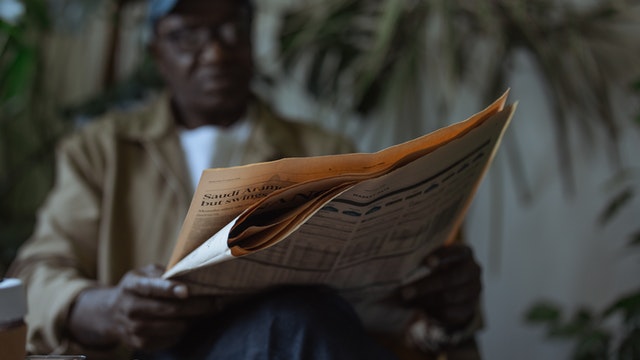
The difference between literary journalism and objective journalism is very clear and easy to understand. Literary journalism is the nonfiction form of literature which deals with the newspaper and magazine etc. All types of writings under this genre come under literary journalism. Immersion journalism is also a very common term for literary journalism.
Literary journalism has a direct link with the people or the subject matter. In literary journalism, the writing always considers both aspects of an argument. On the other hand, objective journalism usually reports or deals with one way of the argument. On the contrary to literary journalism, objective journalism provides purely the informational stuff to the readers.
The Difference Between Literary Journalism and Other Forms of Journalism
Written and edited articles differ from opinion pieces, historical and cultural review pieces, profiles, and explanatory articles. Other journalistic elements are not used in literary journalism, such as sources, quotes, footnotes, charts, graphs, timelines, and maps. These have been dropped from literary journalism because they’re no longer necessary. A reader should be able to decipher the meaning of a document even if a journalist doesn’t provide all the information.
Instead of getting inside the subject’s head, literary journalism is closer to an art form. It makes use of metaphor and allusions to enrich its storytelling and enrich the subject.
What Does Literary Journalism Offer the Reader?
Literary journalism is a better source of information. It offers the reader a deeper understanding of what is the purpose of the reporting. Most of the reports were nonfiction pieces that had writers providing details on certain subjects. For example, a writer might describe an accident where one person is “hit by an eight-ton bus”. While another writer might make the story into a full-length story. Where the main characters are actually six kids that get on the bus at the same time and a dog that gets off the bus at the same time and runs into the house where they are playing. The “shot-by-shot” details of the story offer a more vivid picture of what happened, and the newspaper reporter can give readers a closer look at the events.
What the Journalists Might Choose?
Here comes a very interesting question: why should journalists choose literary journalism. Journalists who study, write about, and report on literature and literary journalism have the advantage of working with a variety of diverse subject matter. This includes things that most journalism students will never work on. For example, interviewing the author of The Divine Comedy or meeting some other famous author. Not to mention that there is a strong academic component to being a writer in the English Department at a university, as the coursework in English courses teaches creative writing as a form of literature.
The Chicago Tribune‘s Lois Solomon claims that “Teaching a discipline can be more fun than teaching a subject,” and that can certainly be true.
How Does It Differ From Objective Journalism?
Objective journalism is the form that we can find in today’s print news reporting. Or we can say that the media or news agencies are using objective types of journalism to convey their message to the masses. So in this way, we can say that it is the opposite of literary journalism.
Objective journalism reports the news as it is. So in this way, the structure and sense of the news do not intermix. It is the simplest way to convey the message in the form of news to the audiences. In its simplest form, a news report is a chronological sequence of facts, with no bias in the reporting. This makes it much easier to understand and convey a message to the audience.
In contrast, a literary journalist is more likely to focus on why the facts are that way. And how they manipulate these facts or the writer’s personal experience with the subject of the story. Literary journalists are more likely to have close relationships with the people they are writing about than objective journalists.
What Is the Purpose of Literary Journalism?
The purpose of literary journalism is to inspire social change, expand empathy and increase awareness of important subjects. Literary journalists are often willing to go undercover, wearing a disguise, and write about controversial people and events. They also tend to write about people, rather than organizations. They report on behind-the-scenes moments. The purpose of literary journalism is to communicate the moods and hopes of the world, rather than on the values and stances of institutions.
Literary Journalism is diverse in its types. There are many types of literary journalism, depending on what the journalist wants to write about. Some are more informational and have a chronological approach, while others are more reflective and have a more subjective approach.
What Are Some Examples of Literary Journalism?
Among the most prominent examples of literary journalism is the writing of Nelson Algren, Alex Haley, Gary Snyder, and James Baldwin. Literature can include prose, poetry, and even theater.
One example of contemporary literary journalism would be “The New Yorker’s” portrait of Edward Snowden. Literary journalism has found its way onto the walls of museums, where it serves as visual artworks alongside other media works. Such museums include the Tate Modern in London, the Whitney Museum in New York, the Museo Nacional Centro de Arte Reina Sofía in Madrid, and the National Portrait Gallery in Washington, D.C.
So the comparison of literary journalism to other types of journalism is quite clear here. In fact, this kind of journalism could be considered an alternative to more traditional forms of journalistic practices.
Conclusion
Literary journalism is a style of journalistic writing in which the journalist goes beyond reporting to become an active participant in the story, relying on personal experiences, emotions, knowledge, and other subjective elements in order to create an immersive work of nonfiction. Most literary journalists would agree that objective journalism is not necessarily better than literary journalism, and both can be used to tell stories.
The distinction between nonfiction and literary journalism can come down to how specific information is used and how the reporter shapes the work. Some academic studies, including that of Gabrielle Norton, show that literary journalism is most likely to produce an emotional response, thus winning an audience’s trust.


